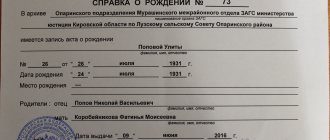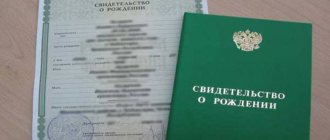The death of a relative is always a sad event, which is often associated with bureaucratic subtleties: the preparation of many documents, the entry into rights. EG.RU figured out what awaits the heirs who gain access to the accounts of the deceased and what do banks do if the money remains unclaimed?
Subscribe and read Express Newspaper in:
Very often, after a person’s death, not only apartments and cars are left behind, but also bank accounts. If they are reflected in the will, then there are no problems, and the heirs will be able to contact the bank. But what if the deposits remain a secret? Lawyers say that unclaimed funds sooner or later become the property of the bank.
How to get money from the account of a deceased relative?
Simply coming to the bank, showing a death certificate and asking for money will not work. Funds can be withdrawn from the account only after entering into inheritance rights. This will happen no earlier than in six months. But even here, not everything is so smooth. Sometimes banks deliberately do not report all the accounts of the deceased.
“Often this is not connected with the desire to appropriate the contribution, the goal is completely different - to spin the money as much as possible so that it generates income. The profit that the bank receives from citizens’ deposits is in no way the 7-8% that is offered to a person when he brings funds to the bank,” explains Sergei Krylov, general director of the Debtors Protection League.
If money remains unclaimed, it will continue to circulate in the system. The bank is not at all obliged to look for relatives and heirs of the deceased and often does not know that the client has died. Although there are also the opposite cases, when employees of credit institutions understand that the funds have not been in demand for a long time and, most likely, they will no longer come for them. Then they can go into the pockets of interested parties through “gray” schemes.
Not long ago it turned out that in St. Petersburg, the manager of one of the bank’s offices, using forged payment orders, withdrew money from the accounts of the deceased. In total, the man embezzled about 550 thousand rubles, for which he received two years in prison.
Sometimes banks deliberately delay in answering the heirs or “forget” about some accounts in which the deceased’s money was.
“Bank employees may ask you to collect additional documents that are not usually required. Certify certificates from a notary, obtain additional papers from government agencies. If the bank is deliberately delaying its response, then you can complain to the credit institution. The Consumer Rights Protection Law regulates such issues, and it does not matter whether the account owner or the heir contacts the bank. The courts always side with the consumer and the credit institution can be punished,” explains Sergei Krylov.
There are reasons for such a bank recheck. If a bank employee doubts that this is the real heir, then bureaucratic delays and suspicion can often scare away the fraudster.
Lawyers warn that finding bank accounts of the deceased is not so easy. Recently, it has become fashionable to open deposits in foreign banks. Gaining access to such information will be problematic.
Divorce without partition?
The Family Code of the Russian Federation states that the property of spouses can be divided both during marriage and after its dissolution.
In this case, property that belonged to the spouse before marriage, as well as property received during marriage as a gift, by inheritance or through other gratuitous transactions, is his property and is not subject to division. Thus, if you opened an account or bought real estate, a car, antiques, etc. while already married, all this is subject to division on a general basis, that is, in the absence of a marriage contract, the court can divide everything in half. If you had a savings or brokerage account, real estate and other property before marriage, then it is reliably protected from the claims of a spouse who plans to become an ex. There is, however, a nuance: when the deposit was opened by one of the spouses long before marriage, but then replenished. In this case, part of it can be considered jointly acquired property, that is, it will have to be shared. “In the case of dividing such a deposit, those funds received during the marriage, including accrued interest, will be taken into account,” explains Elena Proskurova, head of the private law practice at NUS Amulex.
Personal property that a spouse cannot claim also includes money received as a gift, inheritance, from the sale of personal property, as well as compensation for moral damage or material damage. “In order not to subsequently share this property with your spouse, I recommend keeping all checks, payment orders, bank statements, receipts, contracts in case you still have to prove in court that this is personal property,” says Elena Proskurova. The best way to prevent a conflict over the division of property with a spouse is to conclude a prenuptial agreement, preferably before registering the marriage, the expert advises.
It is worth keeping in mind that the death of a person does not entail either a change or termination of the contracts in which he participated, the lawyer warns - instead of the testator in these contracts, his heirs will act. This rule does not apply only to contracts closely related to the personality of the testator: the right to alimony, the right to compensation for harm caused to life or health, and so on.
Another subtle point: the wife/husband are heirs of the first priority, and also have the right to a spousal share of ½; this rule applies to cash deposits and accounts, including brokerage and investment accounts (including the notorious IIS - individual investment account).
Only a marriage contract can cancel this general rule if it stipulates the renunciation of such a share. The heirs have the right to claim the remaining part in the order of priority established by the Civil Code of the Russian Federation. That is, if you intend to leave your spouse without an inheritance and, say, pass everything on to your children, you should take care of concluding a prenuptial agreement.
All types of accounts (current, savings, deposit, investment, brokerage) may be seized by the Federal Bailiff Service, and funds may be written off from them without warning as part of enforcement proceedings. In this way, debts for payment of housing and communal services, unpaid taxes, fines, and loan debt can be collected.
Will someone track illegal ATM cash withdrawals from a deceased person's card?
No The bank will not track card transactions if there are no prerequisites for this.
Yes However, the fact of illegal use of someone else's card can be proven. To do this, you will need a printout of recent account transactions. The bank has the right to begin checking the legality of transactions made after the date of death of the cardholder, but will do this only if you or any other person has demanded that the bank record this violation.
Why you don’t have to pay taxes and what to do with reporting
With the death of an individual, his obligation to pay taxes ceases[1]. If an entrepreneur had debts for personal income tax, VAT, simplified tax system and other “entrepreneurial” taxes, there is no need to pay them to the budget. The same applies to debts on contributions. And not only because there is no longer an obligation to pay taxes, but also because the individual himself is obliged to pay taxes and third parties are prohibited from doing so. It should also be remembered that the power of attorney (if the accountant had one) terminates on the date of the entrepreneur’s death. But there is no power of attorney, and there are no signatures on reporting to the tax authorities and funds.
How to pay employees: why an accountant should not pay salaries
After the death of a citizen, property passes to the heirs, therefore all funds that are in the current account of the entrepreneur or in the cash register of his employees belong to the heirs. They also have the right to dispose of this property. If the accountant pays wages to employees, the heirs may demand the return of their property. The only thing an accountant can do is calculate the salaries of employees and issue them a pay slip. With this pay slip, employees must apply to their heirs for the due payments. If the heirs are unknown to the employees, then you must submit an application to the notary at the place of opening of the inheritance (i.e., at the place of residence of the deceased individual entrepreneur).
How to close a deposit if a person dies?
As mentioned above, if there is only one heir, then he can withdraw money by proxy, although this is not entirely legal. If there are several heirs, they enter into inheritance rights and receive a contribution according to the established shares. If there are several heirs, they can receive the contribution on one day or separately. The last heir who will receive the last amount will close the deposit account. The banks' software is configured so that if the death of the depositor is indicated, the account is closed automatically after all money has been paid out from it. The employee creates a dossier of the deceased and transfers it to the archive for storage. The archive is stored for 5 years, after which it is destroyed. The data remains on electronic media almost forever and is stored on the bank’s servers.
Imaginary donor
There is also a third option, but it is somewhat risky.
You can find a person who will issue a gift for you for the accumulated amount of money - then the wife/husband will not be able to claim it, but the bailiffs will remain in their right. In addition, the gift agreement can subsequently be canceled through the court if the imaginary donor proves that at the time of drawing up the document he was insane or you behaved inappropriately, for example, you attempted to kill him or caused him bodily harm. Unlock access to the private part of Clerk with a Premium subscription. Get hundreds of webinars and online courses, unlimited consultations and other proprietary content for accountants.
Hurry up to subscribe with a 20% discount until October 15, 2021. Read more about “Premium” here.
Double insurance
There are only two types of investments that are definitely not subject to division, cannot be subject to arrest or foreclosure.
These are savings funds (NSH) and investment life insurance (ILI), as well as individual pension plans in non-state pension funds, that is, a private pension that you organized for yourself. “Life insurance funds are not subject to division and are included in the estate only if the beneficiary is not specified in the contract. The NJ/IZH agreement can be concluded in favor of any person (beneficiary), not necessarily a relative, and in the event of the risk of “death,” the beneficiary, not the heirs, will receive the payment,” Elena Proskurova clarifies. The most interesting thing is that the funds of the ILI and NSZH cannot be levied, since until the insurance payment is received, these funds belong to the insurer and are not the property of the debtor. Accordingly, they cannot be confiscated, arrested and will not be subject to division between spouses. They are also not subject to declaration, since they are not income. It is worth keeping in mind that after you have closed the insurance contract and the redemption amount (in case of early termination) or the insured amount (at the end of the contract term) has been transferred to you, it becomes your property. Accordingly, both bailiffs (if there are enforcement proceedings) and the spouse can claim it.
The situation is similar with individual pension savings, which are also not property until the funds are withdrawn or a pension is assigned. “There are often cases when, in preparation for a divorce that threatens the division of property, people withdraw money from bank accounts and bring it to us or to insurance companies in order to protect them from the encroachments of their spouse,” an expert from one of the leading NPFs told Banki.ru.
Thus, if you want to safely save or protect your already accumulated money, without the fear of suddenly losing it due to problems on the personal front, there are two reliable options: the first is to open an account with a non-state pension fund, the second is to enter into a savings or investment insurance agreement.









